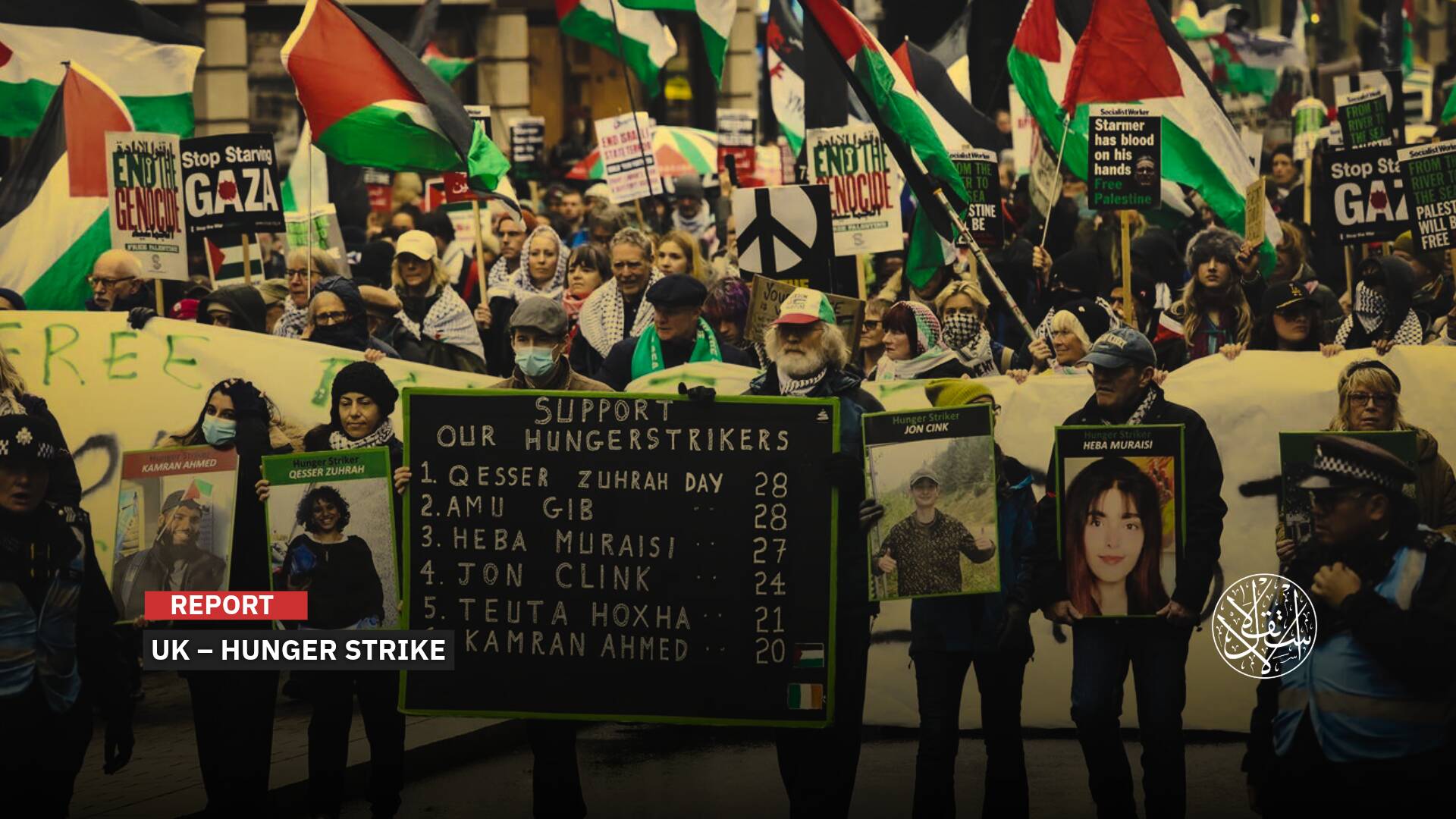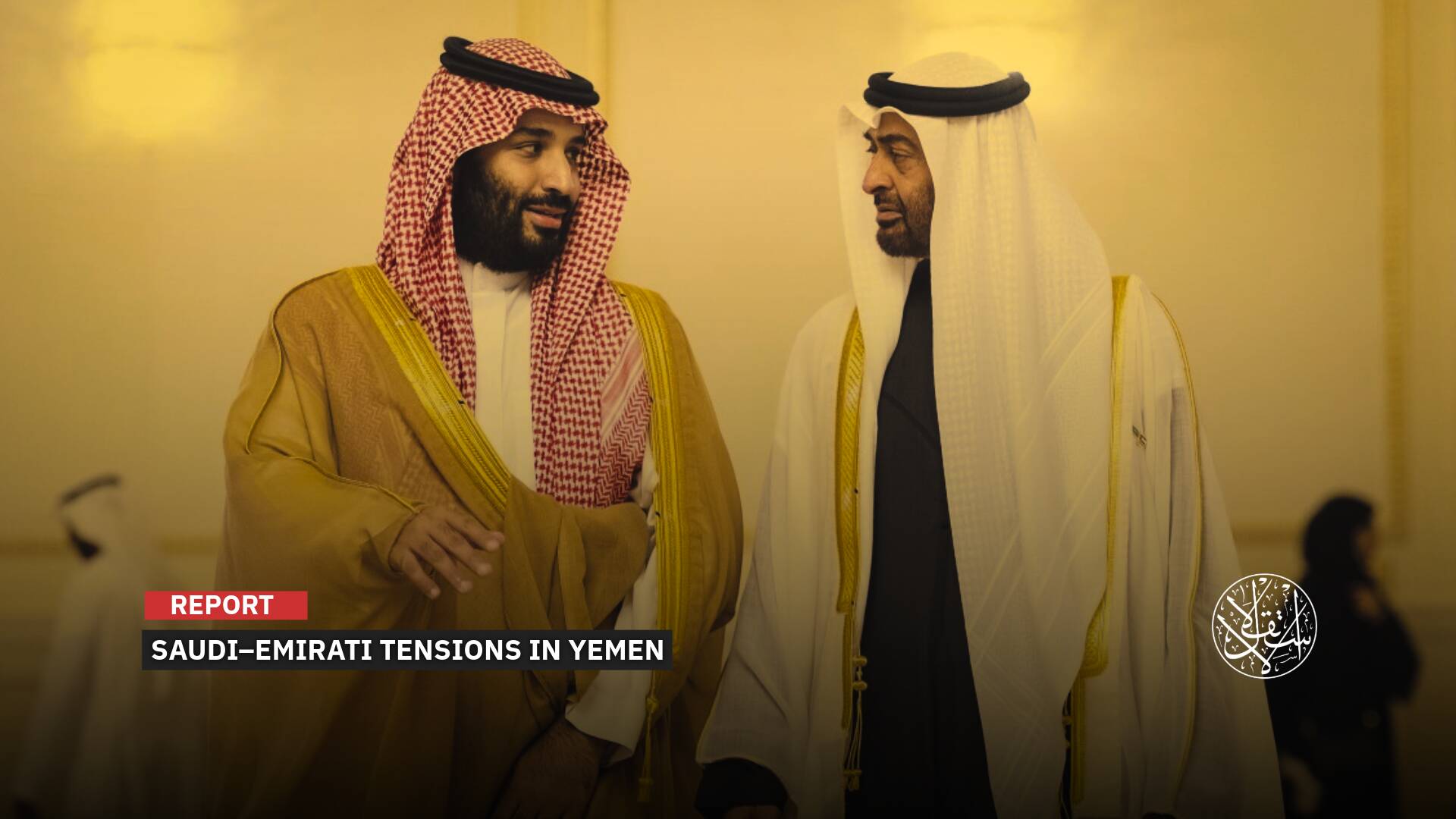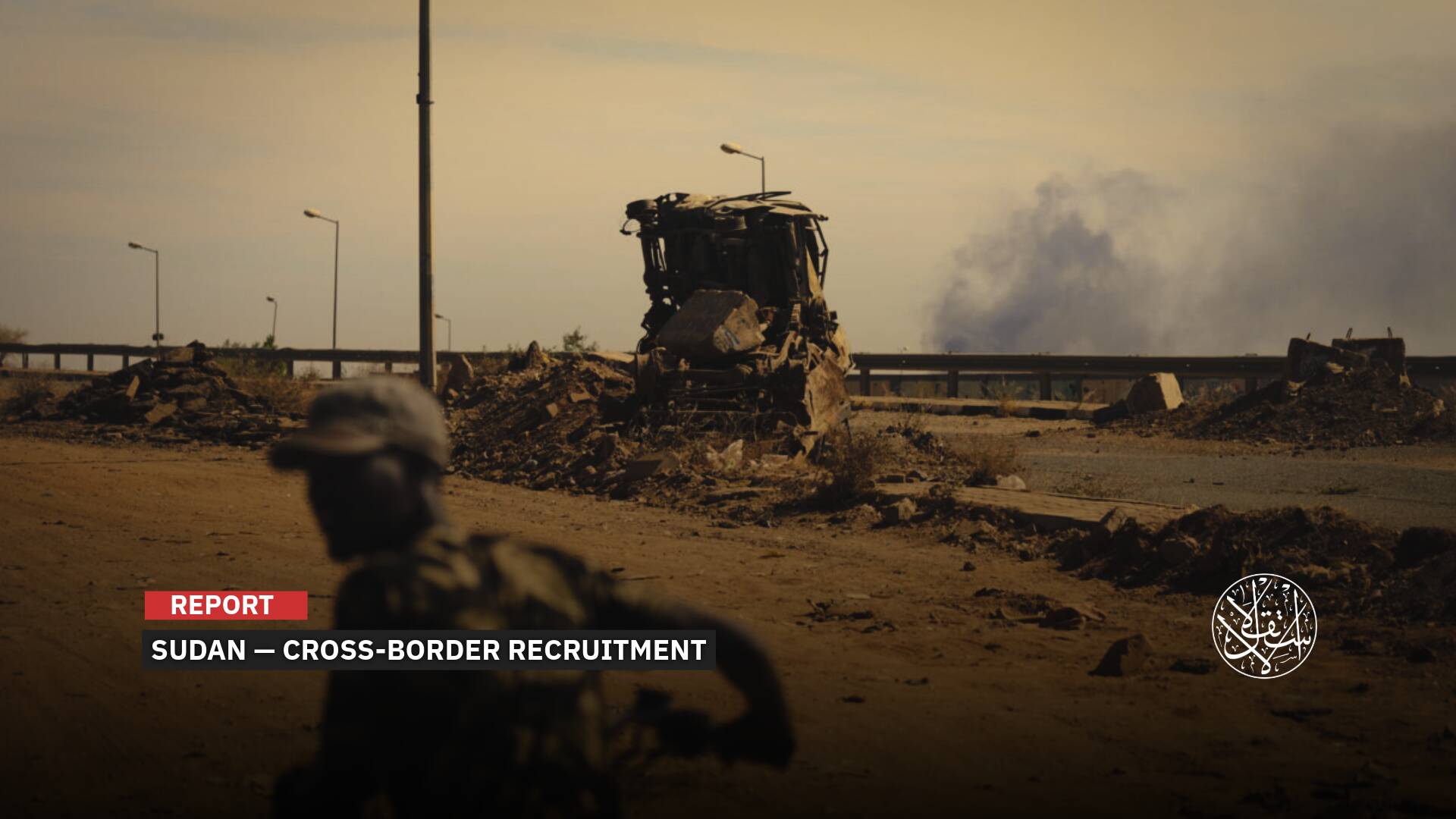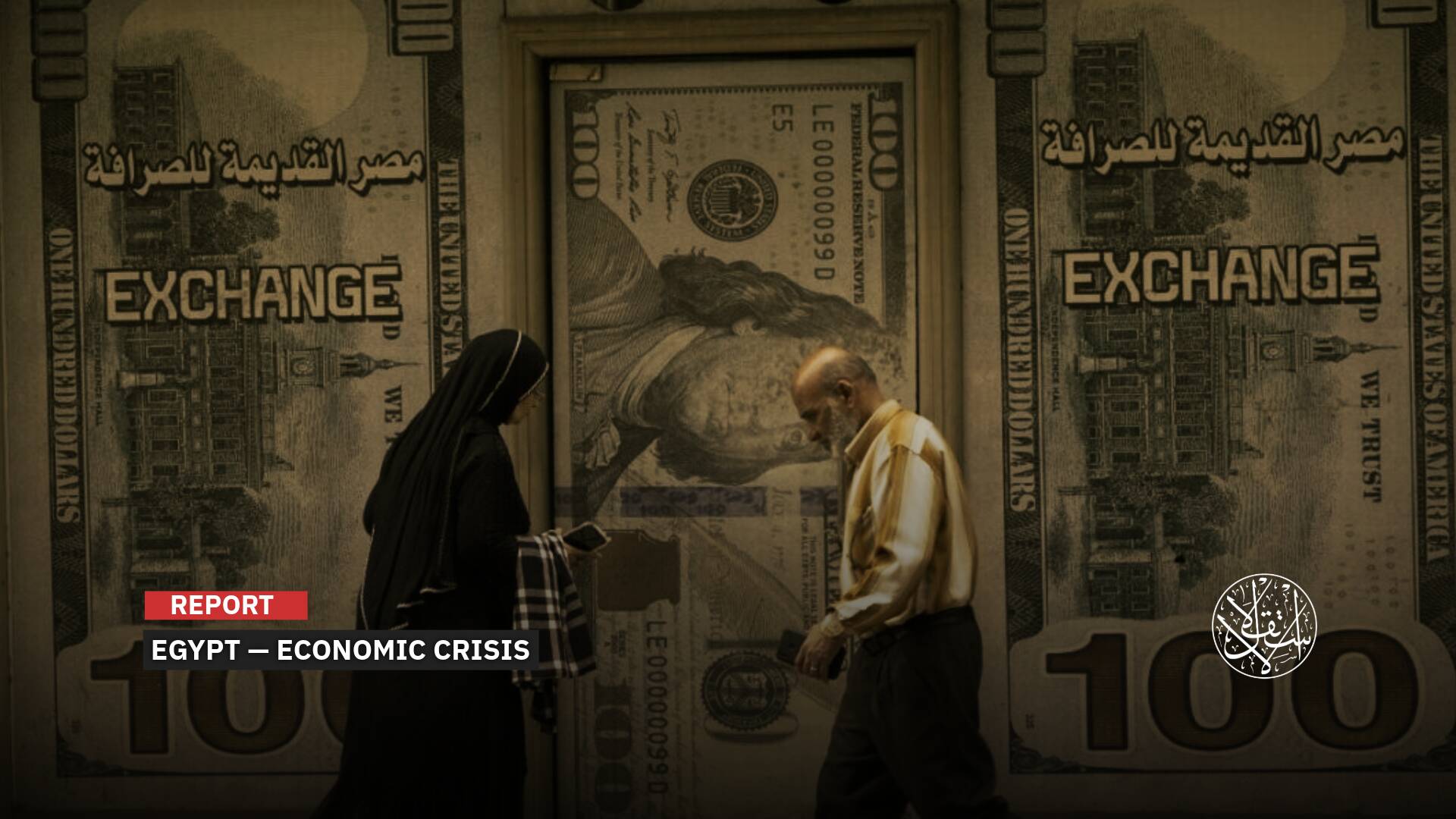How Hatred and Hostility Towards Muslims and Immigrants Have Escalated in Britain
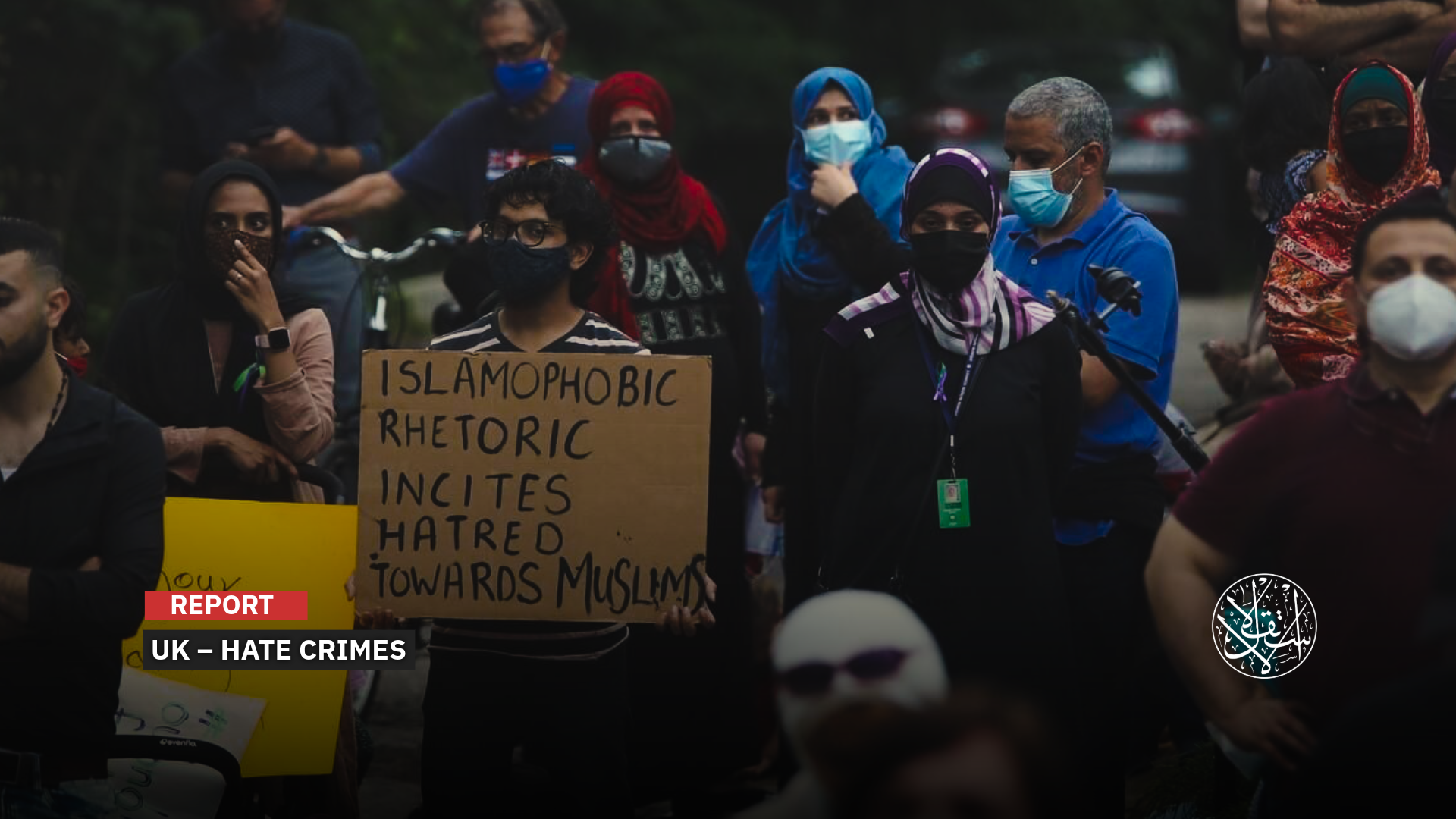
“Attacks on mosques in the UK have soared in recent months.”
The phenomenon of the far-right and populist rhetoric in Britain has transformed from an isolated occurrence confined to individuals on the fringes of political life into a significant force represented by political parties that polls indicate would achieve remarkable results if a general election were held today.
The far-right, which attacks minorities, immigrants, and refugees, blaming them for economic, social, and political failures, appears to have a clear problem with multiculturalism and religious diversity, a cornerstone of British society.
In mid-September, London witnessed one of the largest far-right demonstrations in the UK's modern history, where slogans were chanted that were hostile not only to immigrants but also to Islam, Arabs, and the Palestinian cause.
Over the past three months, 25 mosques in Britain have been subjected to 27 attacks, including the hanging or leaving of Christian or national symbols and slogans, graffiti, vandalism, and arson attempts.
A recent academic study sharply criticized the UK government, accusing it of institutional denial and the exclusion of Muslims in its handling of Islamophobia.
Hate Crimes
Amid rising attacks on mosques in Britain and the expansion of far-right movements, researchers warned that the prevailing political discourse in the country is fueling hatred against Muslims instead of curbing it, noting that this new wave of hostility portends dangerous shifts in British society.
They emphasized that the attacks on mosques are not isolated incidents, but rather a direct result of escalating racism and political populism, asserting that right-wing movements have gained increasing political and media influence, especially after the rise of the Reform Party, which is considered a leading contender in voting intention polls.
Former Scottish First Minister Humza Yousaf warned of a dangerous rise in Islamophobia in the UK and the U.S., noting that the anti-Muslim rhetoric today is frighteningly similar to the language used against Jews in Europe during the 1930s.
He emphasized that recent months have witnessed a terrifying surge in hatred against Muslims on both sides of the Atlantic, calling for urgent action to confront this growing threat.
He pointed out that the UK has recently experienced a series of incidents targeting Muslims, including arson attacks on mosques, the desecration of Muslim children's graves, and violent assaults on Muslim men and women in the streets.
Following a rise in hate crimes, Prime Minister Keir Starmer announced a new £10 million security package to bolster the protection of mosques and Islamic institutions.
He also noted that around 150,000 people participated in the ‘Unite the Kingdom’ march in London, organized by the notorious extremist Tommy Robinson, whom Yousaf described as a proud Islamophobe and serial criminal.
He asserted that far-right forces in Europe and the U.S. are collaborating and exchanging disinformation to spread hatred and incite violence against minorities, particularly the Muslim community.
He stressed that remaining silent about the rise of the far right would be a grave mistake, saying: “We cannot stand idly by while far-right forces continue their ascent. If this hatred is left unchecked, the consequences will be devastating.”
He called on Muslims and non-Muslims who reject Islamophobia to unite and organize across borders to confront this common threat, emphasizing that he is working to establish a transatlantic alliance aimed at combating anti-Muslim hatred in both the UK and the U.S.
Last week, Yousaf argued a graffiti attack on a mosque in Glasgow showed anti-Muslim hate is being normalised.
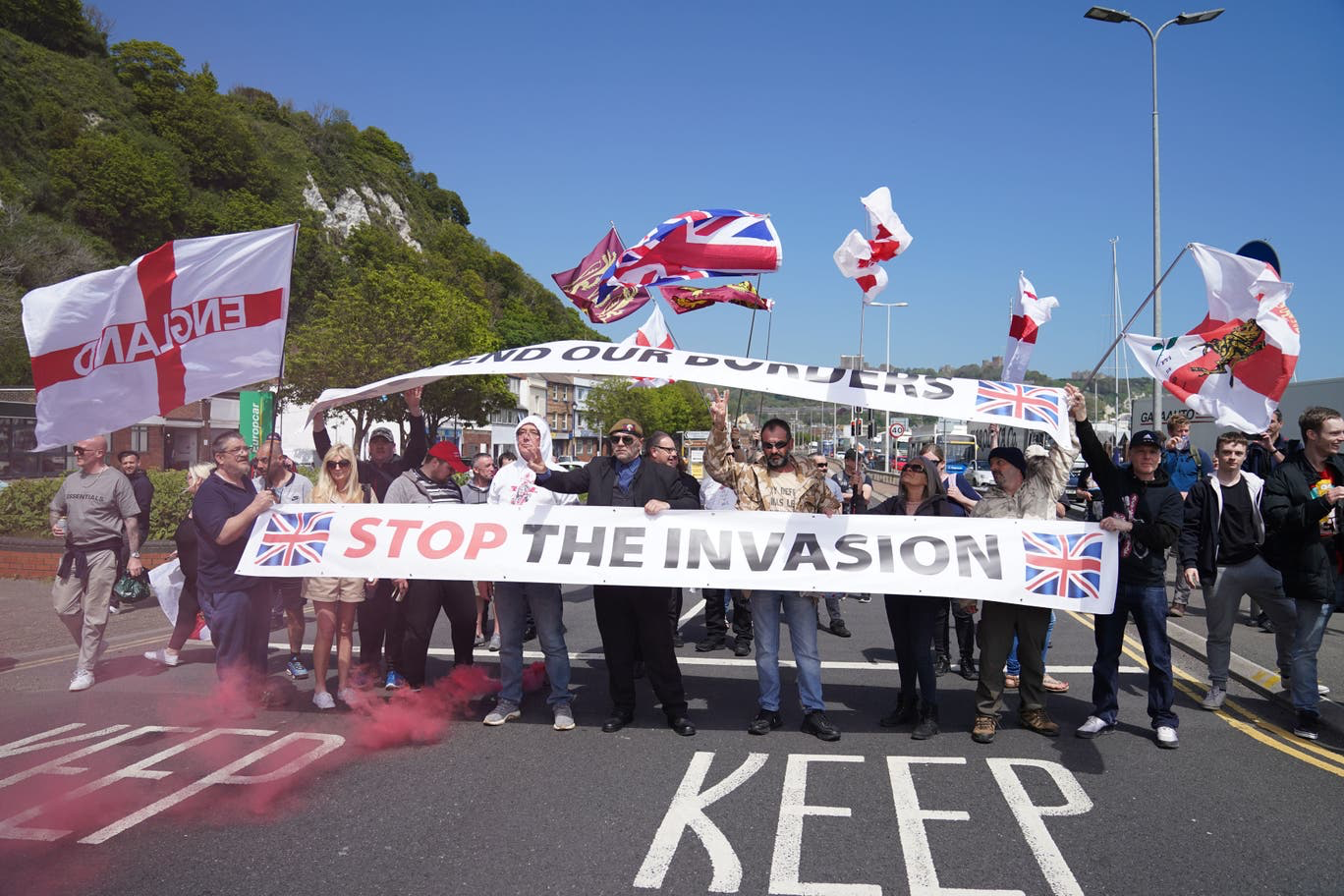
Real Danger
On October 22, a British court sentenced three far-right extremists to lengthy prison terms after convicting them of plotting attacks on immigrants and mosques as part of what they believed to be an impending race war.
Prosecutor Jonathan Sandiford told the jury that the three defendants expressed admiration for Nazi leader Adolf Hitler and perpetrators of terrorist attacks, as well as hatred of non-whites, particularly Muslims and immigrants.
Among the hundreds of messages exchanged by the three, including on the Telegram app, were discussions about assassinating then-Prime Minister Rishi Sunak and torturing Muslim imams.
This case has brought renewed attention to the threat of far-right terrorism in the UK, which has grown over the past decade and now accounts for about a fifth of the workload for counter-terrorism police, according to officials.
It has also shown how domestic terrorism is increasingly being instigated through encrypted messaging groups by small groups of people, rather than by larger, organized groups.
Right-wing extremists have also carried out several attacks recently, including a neo-Nazi convicted of stabbing an asylum seeker in 2024.
A man also committed suicide after throwing a firebomb at an asylum seeker processing facility in 2022, an attack that counter-terrorism police said was motivated by far-right ideology.
Under the Equality Act 2010, Islam is protected as a religion, but Muslims are not defined as an ethnic group and are therefore not protected against racial discrimination.
For his part, London-based lawyer Bassam Tablieh explained in a statement to Al-Estiklal that “the hostile discourse against Islam is no longer confined to the margins, but has become part of the political language adopted within major parties such as Labour and the Conservatives, who have drifted politically to keep pace with the discourse of the extreme right instead of confronting it.”
He asserted that the Muslim community in Britain is currently experiencing a state of fear and isolation due to the absence of political and social leadership capable of representing them, noting that some Muslims are seriously considering leaving the country because of their sense of insecurity.
He warned that the continuation of this trend will erode the values of coexistence and citizenship that have characterized Britain for decades, emphasizing that the real danger lies not only in the attacks themselves, but also in the government's inaction, which allows hatred to find fertile ground within society.
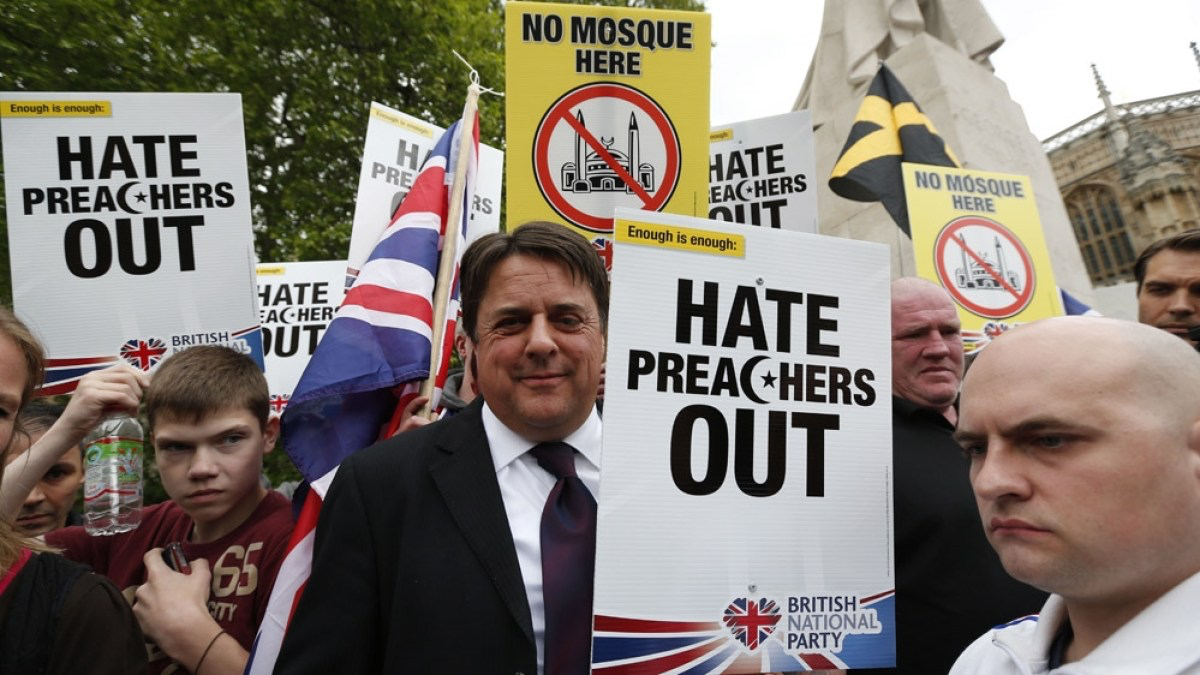
Religious Attacks
Recent academic research has concluded that Islamophobia in Britain is no longer an isolated phenomenon or fleeting discourse, but rather a growing social reality fueled by government policies and elite rhetoric, while Muslim communities are denied their right to participate in shaping a definition that reflects their true suffering.
It indicated that the spread of misleading rumors, such as the false claims that followed the Southport attack in 2013, exacerbated waves of hatred against Muslims on social media.
It also noted that statements by British politicians, such as Boris Johnson's comparison of women wearing the niqab to letterboxes, were followed by a 375% increase in attacks, most of which targeted Muslim women.
He strongly criticized the refusal of successive British governments to adopt the definition of Islamophobia put forward by the All-Party Parliamentary Groups (APPG), which defines Islamophobia as a form of radical racism targeting expressions of real or perceived Muslim identity.
Although this definition was widely accepted by local councils, trade unions, and the Labour Party when it was in opposition, the current Labour government backtracked on its commitment and established a new body called the British Muslim Network (BMN), headed by former Conservative Attorney General Dominic Grieve, to draft an alternative definition.
In a related development, more than forty Labour and independent MPs recently called on Housing Minister Steve Reed to expedite the adoption of an official definition of Islamophobia, arguing that the move had become urgent and necessary.
The letter, signed by prominent MPs such as Diane Abbott, Dawn Butler, and Kim Johnson, emphasized that the absence of a clear and binding definition of Islamophobia is hindering legal and societal efforts to protect the nearly four million Muslims living in the country.
Official data revealed that Muslims accounted for 45% of all victims of religiously motivated hate crimes in England and Wales in 2025, a 92% increase since 2023. This reflects a significant rise in religiously motivated attacks.
MP Afzal Khan, a prominent advocate for Muslim rights in Parliament for over two decades, expressed his hope that this momentum would not be lost, noting that Muslims in England and Wales faced 3,199 hate crimes up to March 2025.
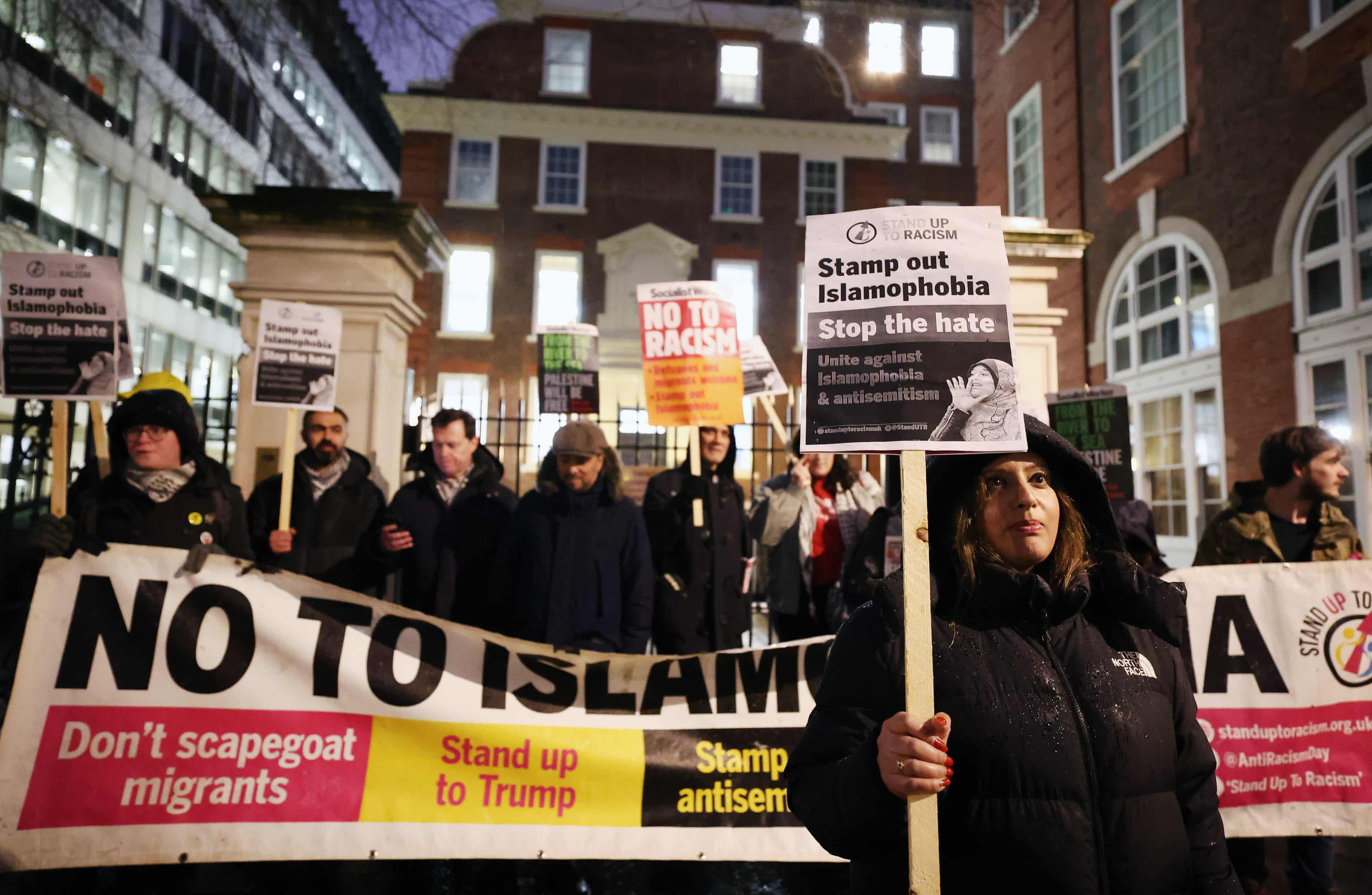
These demands coincide with a rise in anti-Muslim rhetoric in the media and on social media platforms, particularly following recent regional tensions in the Middle East.
Observers believe that adopting an official definition of Islamophobia could be a turning point in combating discrimination against Muslim communities and restore confidence in Britain's commitment to the values of equality and social justice that it has long touted to the world.
Despite concerns from some critics that the definition would restrict freedom of expression, government sources confirmed that the proposed definition would seek to balance the protection of Muslims with the legitimate right to criticize Islam as a religion.
Sources
- MPs urge minister to adopt definition of Islamophobia amid rise in hate crime
- 'Nationwide surge' in UK anti-Muslim hate as mosque attacks on rise: Watchdog
- Far-right extremists jailed for terror plots
- British Neo-Nazis Discussed Targeting Migrants, Mosques and Synagogues
- Humza Yousaf says Muslims are experiencing what Jews did in 1930s Germany


